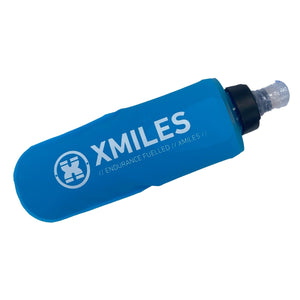It’s your choice - with our knowledge.

Product Insights
Discover more about the products in this article

Endurance Fuelled Gel Flask 170ml
Featured Products
Keeping your bottles and flasks clean - A short how to guide
Whether you’re an avid runner, hiker, cyclist, or simply want to stay hydrated throughout the day, reusable water bottles, soft flasks and bladders have become essential for many of us.
For the environmentally conscious, a reusable water bottle reduces both your carbon footprint and the amount of plastic waste going into landfill.
But how often do you clean yours? Unfortunately, many bottles are discarded prematurely because they haven’t been kept clean. So, to ensure their longevity and maintain optimal hygiene we are going to run you through the best ways to clean your water bottles, soft flasks, and bladders.
Gather Your Supplies
Before you begin get everything out ready, you may want to use the following:
- Washing up liquid or bottle cleaning tablets
- Bottle brush or pipe cleaners
- Baking soda (optional)
- White vinegar (optional)
- Trying rack or tea towel
Always rinse immediately after use: especially when using for anything other than water, energy drink mixes for example.
Hand Wash
For regular cleaning, hand washing with washing up liquid and a bottle brush should be sufficient. For bladders use a long flexible brush or pipe cleaner to clean the tube.
Baking soda or bottle cleaning tablets:
If you’ve been neglecting cleaning your bottle for a while, then it might be time for a more thorough clean. To tackle stubborn stains and odours, you may want to use a specialised bottle cleaning tablet or a homemade solution with baking soda.
Follow the instructions on the tablets packet or mix warm water with baking soda and leave to soak. Then scrub and rinse as usual.
Disinfecting with vinegar:
For an intense clean you can use white vinegar as a natural disinfectant. Mix equal parts water and vinegar, fill the bottle or flask, and sit for 15-20 minutes before rinsing. When using this method, you will want to give your bottle a thorough rinse to get rid of any vinegar smell.
Dry properly:
After you wash your bottles and flasks, it’s important to dry them properly to prevent any mould or bacteria growth. Place upside down on a drying rack or clean towel to dry bottles out. Also, where possible avoid storing with lids on until completely dry.
Try to make a habit of properly cleaning and drying your water bottles and flasks at least once a week, or even more frequently if using for anything other than water. This will extend their lifetime saving you money, and keep them fresh, odour-free, and safe to use.
Is your current bottle ready to retire?
View our full range of bottles, cups, and flasks here.
It’s your choice - with our knowledge.


















